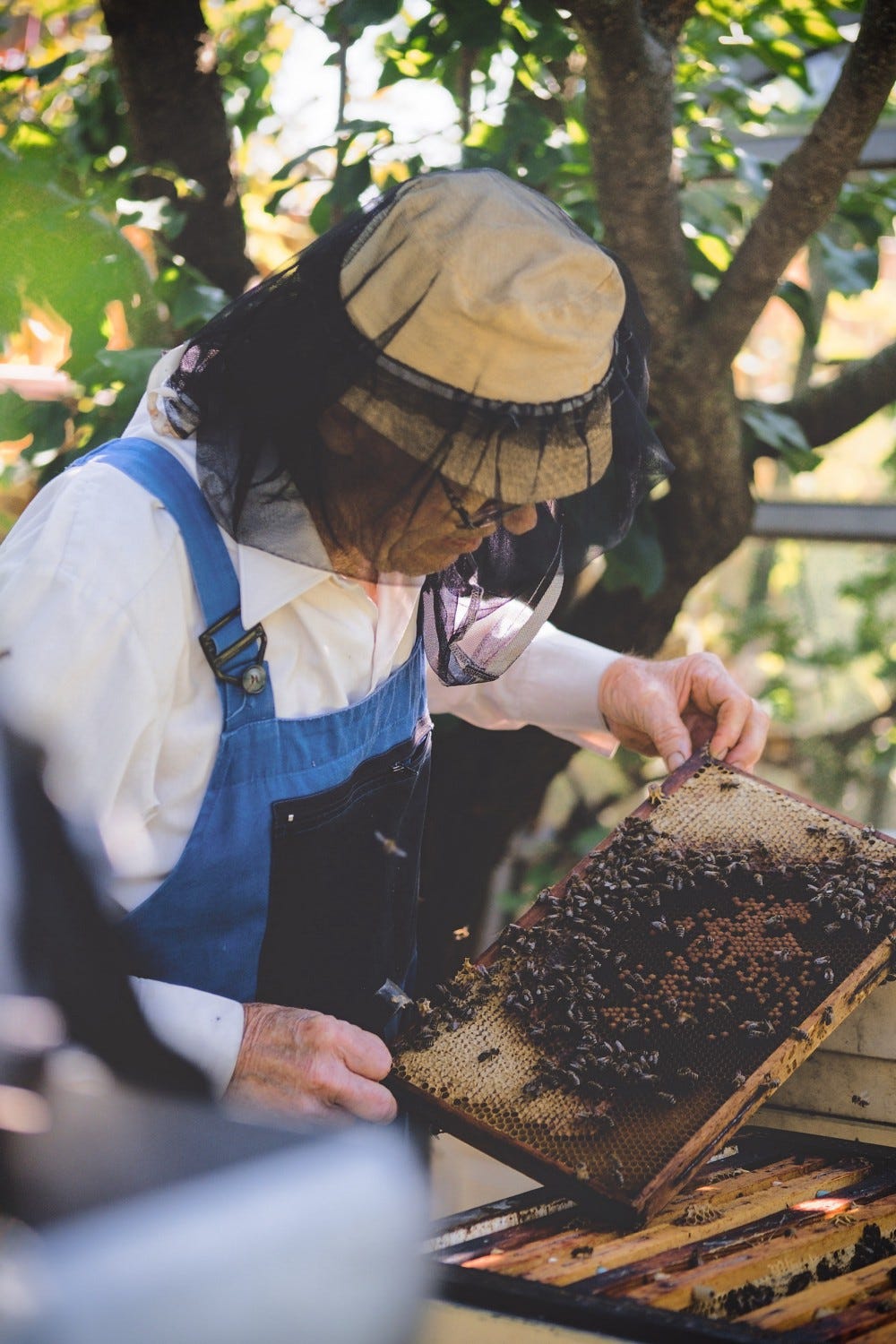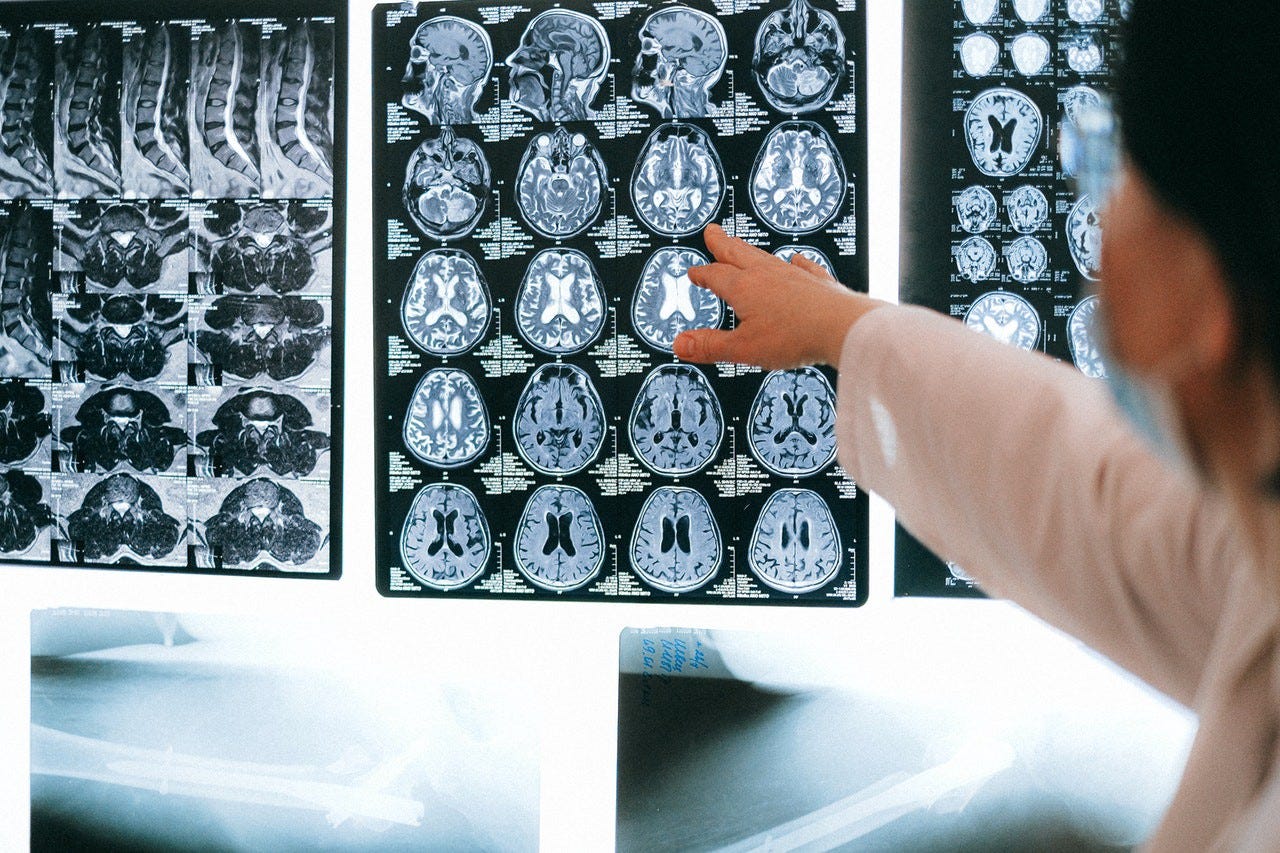Our Biology Affects Our Behavior, Thoughts, and Emotions: Are We Living in A “Biological Wonderland”?
Or maybe we are living in a tiny and restricted bucket.

Biology influences decision-making because it provides instincts and predispositions that influence thoughts and actions without knowing it.
Biology motivates individuals to participate in activities that would have been beneficial for survival and reproduction. They are more likely to be repeated throughout generations through the effects of pleasure and purposeful satisfaction.
Biology can influence thought processes by affecting an individual’s identity, thus encouraging a person to participate in society’s social norms to meet their desire for consistency in decision making.
Humans evolved through natural selection, so they have instincts and predispositions that motivate them towards certain activities essential for survival under specific circumstances.
Infants will cry when placed into a room alone, depending on whether they are attached to their parents. This is the infant’s way of signaling to their parents that they are in need. Biology plays a role in the decision-making process because it provides humans with specific innate standards which influence thoughts and actions without people even knowing.
I’ve always been interested in human behavior. I’ve always been curious about why I did something and not something else. Why did I pick one thing instead of another? Early in life, I discovered that the way I thought affected my emotions. And those different emotions produced varied ways of behaving. If I wanted to change my behaviors, I had to look into the way I thought and thus the way I felt too.
From my mid-twenties through my early thirties, I immersed myself in the human potential movement. Sometimes with excellent outcomes, and other times with terrible after-effects. Recently I’ve been studying Human Behavior Biology, which I find fascinating.
In studying these subjects, I was introduced by a dear friend to a fantastic Stanford professor. He is considered one of the main if not the leading authority in Human behavioral Biology. Robert Sapolsky’s research is on the biology of humans. He teaches that we are all living in buckets. You might think: I don’t live my life like that! And you’re right; you do, and you don’t.
The human brain is not large enough to store all the information it would need to keep track of everything happening at any time. Thus, it has developed various ways of “bucketing” information.
Sapolsky identifies four different “buckets”:
(1) The central “bucket,” which stores things like your name and address.
(2) The peripheral bucket stores memories that are not recalled or thought about but that you will remember with effort.
(3) The visit bucket stores things you’re thinking about now but will forget when you stop thinking about them for a few minutes or hours.
(4) The multiplexer bucket stores information that can be retrieved only by triggering other memories. Memories of patterns are stored in the multiplexer “bucket.”
What does he mean by buckets? Think back to a time when you had no context by which to judge something. No references, no comparisons. Things were either “good” or “bad,” but you had nothing in your head to help determine what “good” was and what was “bad.” When you are in the moment, things are “good” or “bad” because that is the only way we understand life. Later on, though, we begin to impose our inner buckets upon everything.
We get so used to thinking about these internal “buckets” that most people stop noticing them. If asked about it, most will say they don’t look at particular things through any lens. Other than their point of view. According to Sapolsky, this is a half-truth because we are using our internal “buckets” to judge everything.
Let’s go back to the original example. Even as an adult, when something “bad” happens, I still think of “good” and “bad” as the only ways events can be labeled. When something terrible happens, it means that something good didn’t happen. It’s effortless for me now, but it wasn’t always that way.
When you’re a child, life has no context other than what you draw from your environment. If you don’t know about bad things happening around you, then if something terrible happens, it is “bad.” Eventually, though, we all learn that bad things happen and good things don’t. Or vice versa. We put that into our bucket list of what events mean to us. And now we use those “buckets” as filters for every experience we have from here on out. Everything gets dumped into these internal “buckets.” So now, we can label anything as either “good” or “bad.”
This is the way Biology affects human behavior by making us see good and bad everywhere. I’m not saying that Biology causes this categorization process itself. But Biology supports it. Biology gives us a context upon which to judge everything in very black-and-white terms. When emotion surges through our bodies, Biology backs up those emotional reactions with physical reactions. Bodies take sides one way or the other to help us battle with the world around us.
What we are referring to here is the study of human behavior in the context of biology. Biology, as a science, has been around for 500 years, whereas Psychology has only been around for 150 years.
Before Psychologists developed it, there was no such thing as ethics or religion in Biology. Before it was fashionable to be green, Biology was already eco-friendly. Every day of my life, I’m surprised with what I am learning about myself through studying Nature.
But Biology does more than help us understand the natural world around us. Biology also helps us understand ourselves as human beings. Biology doesn’t have all the answers. But it has enough of them so that we can begin to ask new questions about the way we work. We are on the cusp of some recent discoveries that will change everything for everyone. In ways that are hard to predict or even imagine right now. How exciting!
What are the different ways in which people are affected by their biology?
Recent research has shown that humans, like other animals, behave in specific ways because of the chemicals and hormones they produce.
The question of whether people are born to be “bad” or “good” has been there for centuries. The Biology that drives human behavior is beyond our control. But it does not mean Biology controls us. Biology only gives us the context to put things into these internal “buckets.” Biology also plays a big part in our emotions. Which helps stir everything up even more and makes us want to act on everything around us.
Remember, Biology supports your categorization of everything you do; but, it doesn’t make you behave a certain way on its own. Biology can be used as both a shield against negativity or as a weapon with which to attack everyone around you-it’s up to you how you use it!
How Can Behavioral Biology Benefit Society?
Behavioral biology, also known as behavioral ecology, studies an organism’s behavior with its ecology. It is a sub-field of both biology and psychology.
Many studies are being done about this subject. I want to mention three use cases for behavioral biology that I find fascinating.

One of the most recent use cases for behavioral biology is the study of how bees collect honey. This has some exciting applications for collaboration between people on projects or tasks. Some studies show that it can decrease conflicts, make teams more productive, and increase creativity at work.
Another critical use case for this branch is studying monkeys or apes in their natural environment. To understand what they do with food resources and how they interact with other primates. This has helped humans understand the importance of having social networks and using that to our advantage.
The last and crucial application of behavioral biology has been studying salmon populations in rivers. To understand how they determine which river is best to reproduce in. Research showed that it had nothing to do with water velocity or food availability. Instead, they were attracted by the rocks on the bottom of each river because they looked like spawning nests (rocky shoals). The study involved mapping out where these rocks were and then adding lure devices like them, according to their research, that allowed people to increase salmon population size.
What is Human Behavior and How Does it Relate to Biology?
Human behavior can be studied through the lens of biology. But what are the different approaches to human behavior? The major ones are behavioral genetics, psychodynamics, behavioral biology, and systems theory.
Behavioral genetics studies how genetic factors influence our behaviors and mental processes. It examines how genetic inheritance affects our biological makeup. And triggers certain behaviors, thoughts, attitudes, and feelings. They are passed on from parents to children.
Psychodynamics views human behavior as a result of an individual’s development in response to their environment. Behavior is seen as a call for attention or help from one person to another. Behavior is thought of as unconscious patterns, which become more conscious over time through therapy or other means.
Behavioral biology studies behavior drives and instincts or our genetic needs. Biology can explain how certain behaviors are adaptive while others are maladaptive.
Systems theory looks at human behavior as a function of the whole system, an individual interacting with their external environment through complex interactions among different systems within themselves. But, this concept is more theoretical than practical since not very much research has been done on it to date.
Another exciting field is Evolutionary Biology which studies how life evolved on Earth due to natural selection following changes in environmental factors. This is the main idea behind Charles Darwin’s Theory of Natural Selection, where he proposed that favorable variations will survive due to being passed down. In contrast, unfavorable ones will be selected against. This idea is tied to Biology since it explains how species evolve due to genetic traits beneficial to their survival.
The Evolutionary Significance of Human Behavior
Human behavior is a complex and ever-changing thing. Yet, some patterns can be observed when it comes to human evolution.
For example, there is a correlation between the size of the human brain and the number of babies born per woman. As more babies are born, they need more care. This forces families to stay together and mothers to take care of their children, leading to increased intelligence and widespread domestication of animals and plants.

There is also a correlation between the height an individual takes up on average and their social status (David Wengrow). The taller an individual was in ancient civilizations, the higher their rank would be within their society. Taller individuals also had better health, which allowed them to survive and reproduce at a higher rate than shorter individuals. This led to taller humans evolving since height was passed down within that population.
Height is not the only physical trait associated with dominance and social status. For example, healthy individuals with a low waist-to-hip ratio were more dominant than others (Elizabeth Cashdan).
The Importance of Studying Human Behavior from a Biological Perspective
We cannot learn about human behavior without understanding the biology behind it. The biological perspective can help us understand what drives people to make decisions and use this knowledge to influence their decision-making.
A behavioral Biology is also a vital tool in studying human behavior because it allows us to understand how natural selection impacts our behaviors.
The Brain’s Role in Behavioural Biology
The brain is an organ that handles many essential body functions. It regulates needs, emotions, and behaviors. The brain controls these things by sending signals to different body parts through the nervous system.
The human brain consists of neurons that act as biological switches. When signals are transmitted to a neuron, it will either activate or not activate depending on the signal’s intensity and frequency. This process can be identified as impulse conduction which allows us to feel pain, think about our surroundings, and behave during specific situations.
Implications of the New Behavioral Biology Theory on Society
The behavioral biology theory assumes that the brain is an organ of behavior, with a particular biological function to control behavior.
Neuroscientists have been studying the brain for a long time. Their research has led them to conclude that the brain’s function has been physiological and psychological in recent years. In other words, the brain controls our bodies and influences our thoughts and behaviors.
The behavioral biology theory suggests that this is because the biological function of the brain is to regulate an individual’s behavior, and it does this by influencing a person’s thoughts and actions.
We are not forced to act based on our biological functions but also on what we want. How Biology Affects Decision Making Because people always choose whether or how they can act, it can be difficult to make assumptions about why people work the way they do.
But, specific theories suggest how biology may affect our decisions and actions even when we’re doing something because of personal preference. One such theory is Akerlof and Kranton’s Identity Theory of Economics (Robert Sapolsky). Their theory suggests that an individual’s identity determines their decisions -and their behavior-.
Two characteristics define an individual’s identity according to this theory. The first characteristic is the need to be consistent with made decisions. Suppose an individual decides, for example, that they are a kind person who cares about animals. In that case, they are likely to continue being consistent with their identity by donating money to animal shelters every month, even when times get tough.
The second characteristic of our identities that can influence our decision-making is how people categorize themselves in society. For example, more often than not, women feel pressure from the community to marry and have children, leading them to make confident choices out of fear of deviating from social norms. Biology Can Influence Social Norms Biology plays a role in these behaviors because humans are social animals. Biology has influenced this by motivating human beings to survive and reproduce throughout history.
One way in which biology influences normative behavior is through hormones. Biology regulates behavior by using hormones as messengers to carry signals from the brain to organs and tissues. Biology can also influence normative behavior by encouraging people to conform with the norms of their societies, for example, that women are expected to marry and have children.
Biology may influence a person’s thoughts and actions through instincts and predispositions. Biology has evolved to give human beings instincts and biases that affect our thoughts and actions without realizing it.
Another way in which biology influences social norms is through motivation. Biology encourages people to participate in activities that would have been beneficial for survival and reproduction so that they are more likely to be repeated throughout generations.
If you liked this piece, you might also enjoy these:



